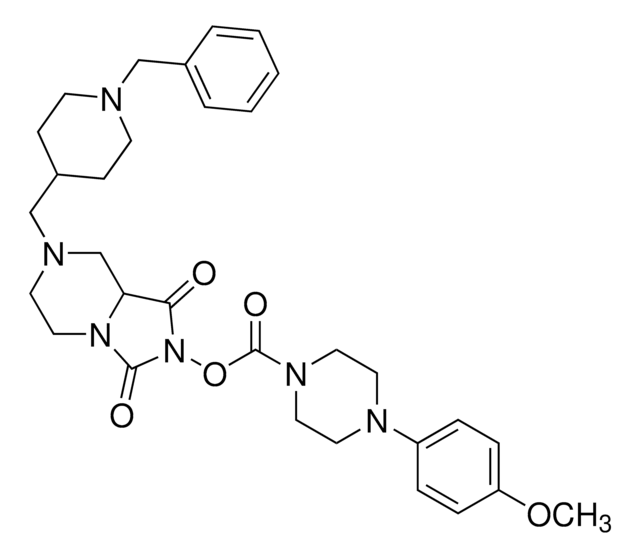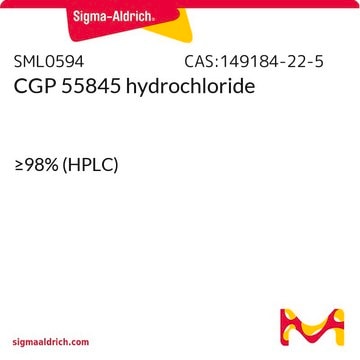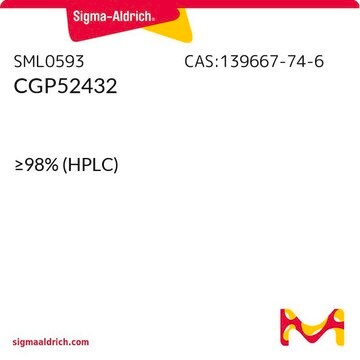C5851
CGP 35348 hydrate
≥97% (NMR), solid
Synonym(s):
(3-Aminopropyl)(diethoxymethyl)phosphinic acid hydrate
About This Item
Recommended Products
Quality Level
Assay
≥97% (NMR)
form
solid
storage condition
desiccated
color
white
solubility
H2O: >20 mg/mL
originator
Novartis
storage temp.
−20°C
SMILES string
O.CCOC(OCC)P(O)(=O)CCCN
InChI
1S/C8H20NO4P.H2O/c1-3-12-8(13-4-2)14(10,11)7-5-6-9;/h8H,3-7,9H2,1-2H3,(H,10,11);1H2
InChI key
SRBHGEXMDCJOMS-UHFFFAOYSA-N
Application
- to study its effects on intrinsic optical signal (IOS) in rat hippocampus
- alone or in combination with sodium salicylate to study its effects on auditory responses in the rat′s dorsal cortex of rat
- to study its effects on hepatocellular carcinoma cells (HCC)
Biochem/physiol Actions
Features and Benefits
Caution
Storage Class Code
11 - Combustible Solids
WGK
WGK 3
Flash Point(F)
Not applicable
Flash Point(C)
Not applicable
Personal Protective Equipment
Certificates of Analysis (COA)
Search for Certificates of Analysis (COA) by entering the products Lot/Batch Number. Lot and Batch Numbers can be found on a product’s label following the words ‘Lot’ or ‘Batch’.
Already Own This Product?
Find documentation for the products that you have recently purchased in the Document Library.
Articles
DISCOVER Bioactive Small Molecules for Neuroscience
DISCOVER Bioactive Small Molecules for Neuroscience
DISCOVER Bioactive Small Molecules for Neuroscience
DISCOVER Bioactive Small Molecules for Neuroscience
Our team of scientists has experience in all areas of research including Life Science, Material Science, Chemical Synthesis, Chromatography, Analytical and many others.
Contact Technical Service








